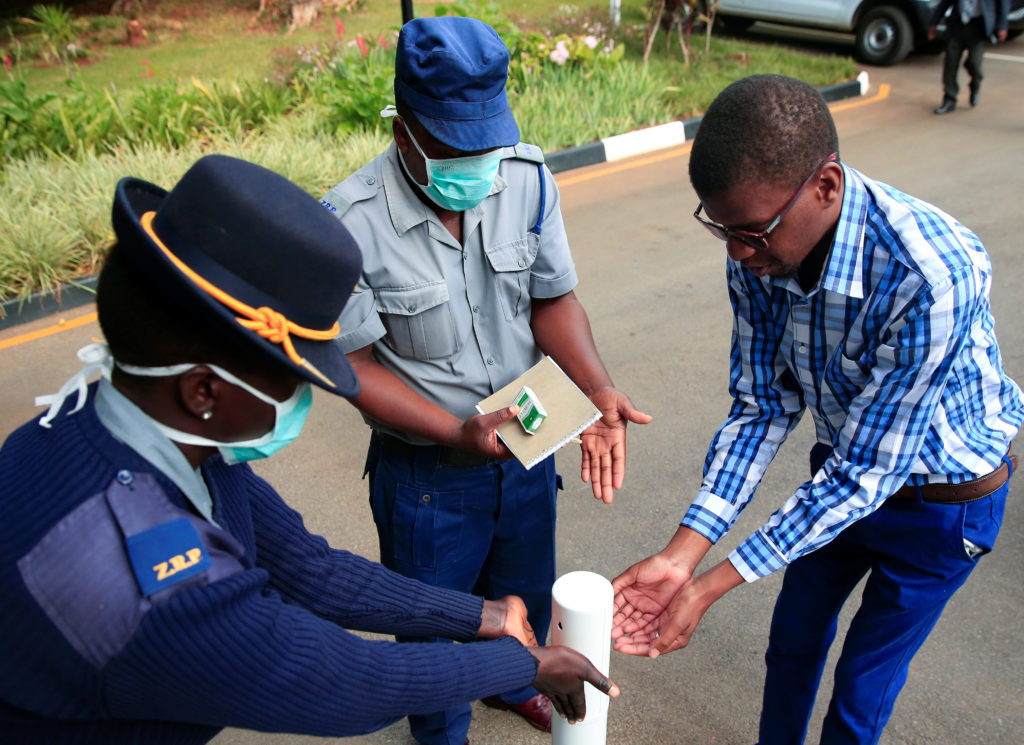
Zimbabwe entered lockdown on March 30th, shortly after South Africa had done so, and along similar lines. Many were left wondering what the point of such action was. While middle-class, suburbanite households could manage to remain relatively isolated, those residing in informal townships and high-density areas could ill afford to do so. Large extended families live in cramped quarters that lack running water, and are forced to use communal ablution facilities. Social distancing is simply not feasible.
In a country that already suffered from unemployment levels in excess of 90%, the lockdown has greatly added to the economic distress. Few employers have been able to continue paying salaries and there is no benign Chancellor to subsidise those with jobs, let alone those without. While supermarkets were permitted to trade for a limited period each day, informal markets and vendors were initially prohibited from doing so, thus depriving the poorest in society of a relatively cheap source of food as well as a source of income.
It is hardly surprising, therefore, that in the high-density suburbs, social distancing has been largely ignored. There have been cases of heavy-handed police intervention but it is a losing battle, especially as such lockdown offenders are unable to pay the fines, or even the bribes. As for the rural areas, it would be impossible to enforce isolation.
Despite the less than rigorous observation of the lockdown, or perhaps because of it, Zimbabwe has had very low infection and death rates; 282 and 4 respectively. Some might argue that this is down to shoddy reporting, but there has been no anecdotal evidence to suggest that these figures are wildly inaccurate, though of course that may change as winter proceeds. Needless to say, there are theories as to why the country has escaped so lightly. These include:
- A population with a median age of only 18.7 years compared to 40 in the UK
- Plenty of sunshine leading to reduced vitamin D deficiencies
- Generally low levels of hygiene which suggests higher levels of resistance to infection
Though conditions have been relaxed and some business that provide essential services have been able to reopen, the Government recently announced that lockdown would continue indefinitely with fortnightly updates. One particularly annoying and, to the minds of most people, illogical regulation concerns the wearing of facemasks which is required even when you are alone in your car. Given the low levels of infection, these impositions on our liberties are somewhat puzzling not to say inconvenient. Further, all travellers to the country, and there are many Zimbabweans trapped abroad, are required to be quarantined for 21 days, either in Government operated facilities which, to be blunt, are disgusting, or in certain approved hotels and guest houses at great expense to themselves.
The cynics among us conclude that the reason for the continued restrictions are to enable the ‘big chefs’ within the Government, to consolidate their financial advantages. At the outset of the ‘crisis’ the Reserve Bank took the opportunity to set the official exchange rate at 25:1 to the US$ whereas the real rate is approaching 80:1 This leaves plenty pf margin for those able to buy hard currency at the bank rate and sell it on the black market. Likewise, the banning of privately operated taxis and buses in favour of ZUPCO (Zimbabwe United Passenger Company), the ownership of which remains shrouded in mystery, has led to speculation that a privately owned monopoly is in the making. The welfare of the country’s citizens was never even on the agenda, let alone a priority.
Zimbabweans are remarkably resilient. They have experienced extraordinary hardships over the past 40 years, even longer if you include the war and sanctions that preceded independence. People are used to reinventing themselves. When a problem arises we announce that, “we will make a plan”. We know we are a pariah state, unloved by all, but despite our woes this is still a wonderful country.












To join in with the discussion please make a donation to The Daily Sceptic.
Profanity and abuse will be removed and may lead to a permanent ban.
I wouldn’t be at all surprised if the same rules regarding the compulsory wearing of muzzles come into force here. They’re a very obvious sign of obedience to the ‘roolz’ and those of us who are sceptics would be easily identified.
Re: ‘Plenty of sunshine leading to reduced vitamin D deficiencies
Generally low levels of hygiene which suggests higher levels of resistance to infection’
My granny used to say ‘You have to eat a peck of dirt before you die’. Children are not being done a favour in being taught fanatical handwashing, or in being slathered in sunscreen every time they step outside.